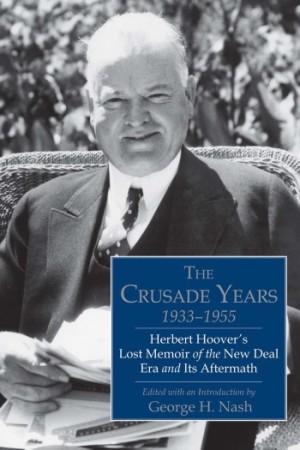Herbert Hoover's Righteous Crusade Against the New Deal: A Conversation with George Nash
Herbert Hoover’s legacy is perhaps forever linked with the failure of the American economy under his presidency after the stock market crash of 1929 and his ensuing defeat by Franklin Delano Roosevelt in the election of 1932. Further adding to his difficulties is the charge that he was progressive-lite in his policies before and after the Great Depression. The proper foundation, it follows, for advocates of a renewed conservative focus is Calvin Coolidge, a President who cut budgets and taxes. This discussion with Hoover scholar George Nash begs to differ.
Nash, who previously appeared on Liberty Law Talk to discuss the lost Hoover memoir he edited entitled Freedom Betrayed—a brilliant criticism of American foreign policy from the late the 1930s through the early postwar period—has now edited another memoir of Hoover’s. This discussion with Nash on The Crusade Years 1933-1955: Herbert Hoover’s Lost Memoir of the New Deal Era and Its Aftermath considers the thoughts, writings, and speeches of Hoover across three decades as he attempted to rally leaders and citizens against the New Deal. Hoover charged that the New Deal would produce a regimented America, one that was no longer free under the rule of law and limited government. In short, Hoover became to the New Deal what Edmund Burke was to the French Revolution, a tireless enemy. So what is the final legacy of Herbert Hoover? This discussion of Hoover’s memoir on domestic policy might cause you to rethink your former assessment.


